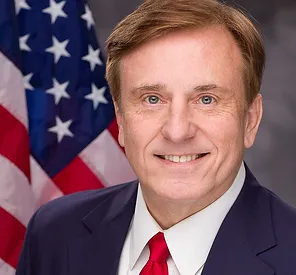BATON ROUGE, La. — Louisiana State Treasurer John Fleming expressed support for Governor Jeff Landry’s decision to temporarily halt the issuance of new permits for carbon capture and sequestration wells, calling the move a necessary first step to safeguard communities and property owners.
“The decision is only a first step to protect Louisiana’s communities, landowners, and natural resources,” Fleming said. “It is a responsible move, reflecting the growing concerns voiced by citizens, parish leaders, and industry experts about the long-term safety, environmental impact, and property rights implications of carbon capture projects across our state. However, there is more work to be done to stop Louisiana from becoming the nation’s center of carbon capture and sequestration.”
Carbon capture and sequestration, or CCS, involves collecting carbon dioxide from industrial sources, transporting it through pipelines, and injecting it underground in a compressed state. Fleming has been an outspoken critic of the projects, citing environmental and property-rights concerns.
Over recent months, Fleming has spoken at public forums across the state, meeting with residents who have raised concerns about possible CO₂ leakage into underground aquifers. He also reiterated his opposition to using eminent domain for such projects.
“No private land should be seized under eminent domain for CCS projects without the consent of the property owners,” he said.
Fleming called for a full review of how CCS projects are permitted and monitored, urging a cautious approach to large-scale energy initiatives. “Louisiana has always welcomed innovation and investment in energy, but we must not rush into large-scale projects that could carry unintended consequences for generations to come,” he said. “This moratorium provides our state with the necessary time to ensure proper oversight, transparent regulation, and meaningful local input.”
Fleming added that the state’s economic future depends on balancing environmental responsibility with private property rights and public safety. He said he will continue working with state agencies, local governments, and citizens to ensure Louisiana’s energy policies are guided by science and respect for landowners.

